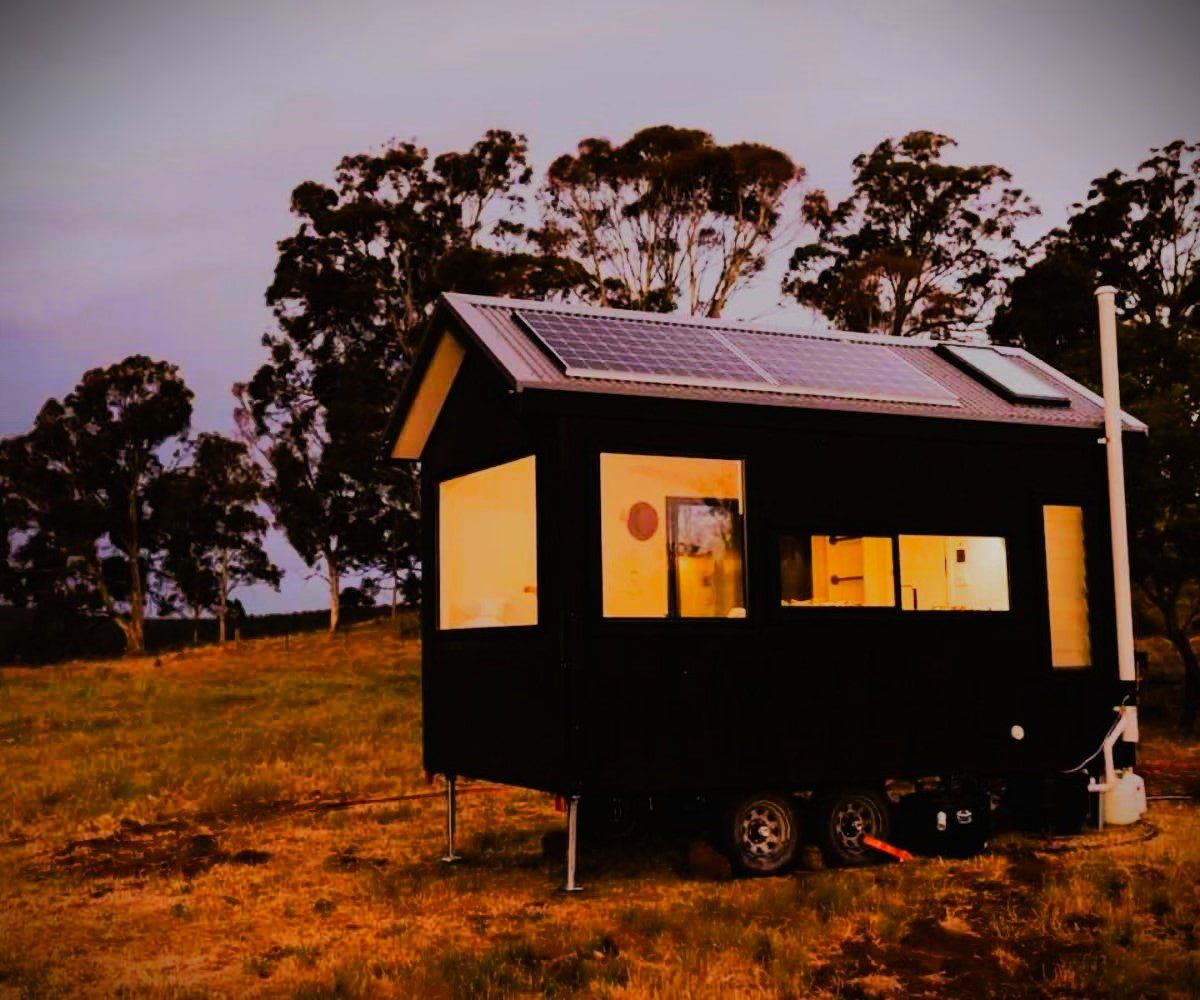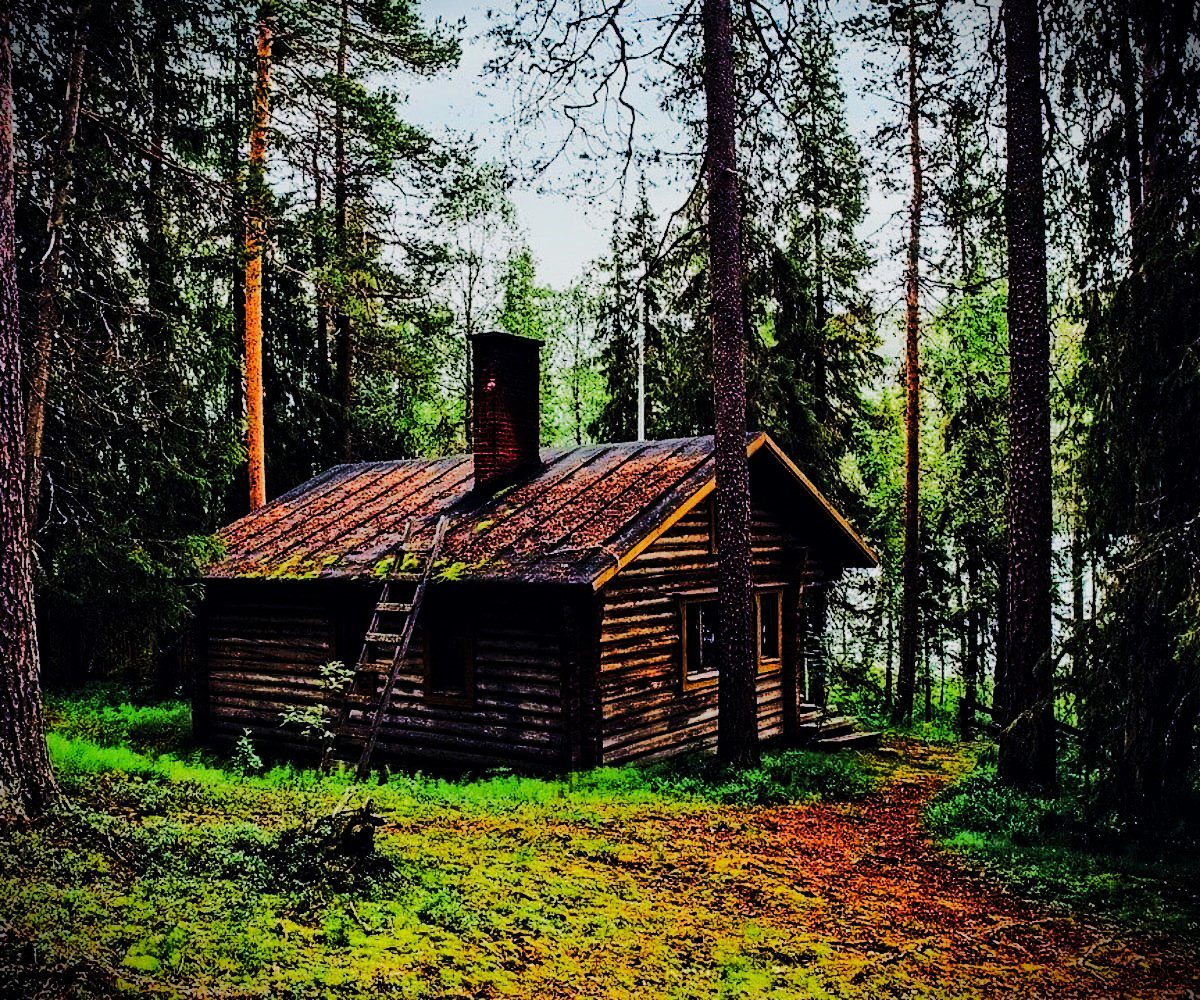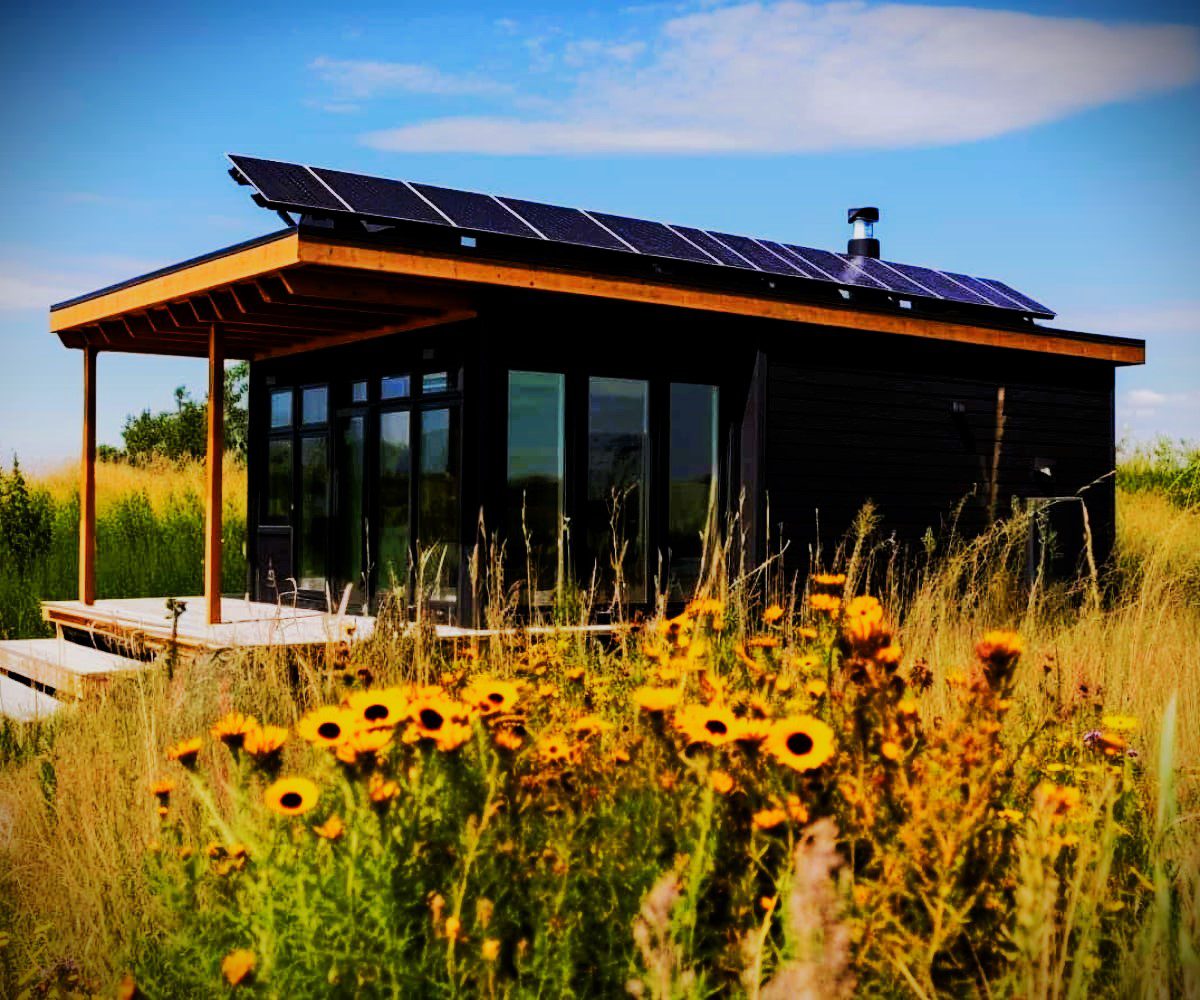Living off the grid means embracing sustainability and independence.
Off-Grid Living When you live off-grid, you don’t use public services like water, power, or garbage. Instead, you depend on self-sufficient ways to meet your needs. Discussing off-grid living’s merits and cons, prerequisites, and recommendations for those considering it.


Advantages of Living Off the Grid Effects on the Environment
One of the main reasons people choose to live off the grid is that it is better for the earth. Using less fossil fuels and centralized utilities reduces carbon emissions and environmental effects.
Freedom with money
In the long run, living off the grid can save you a lot of money. Startup is costly, but saving energy and resources may make you independent.
Problems with Living Off the Grid
First Investment
Solar panels, water filters, and composting toilets are pricey off-grid. These purchases are worth it in the long run, but they may be too pricey for others.
Few Resources
When you live off the grid, you have to be very careful with resources like energy and water. Remote areas lack clean water and sunlight, so people must be creative to save and use resources.
Fixing and maintaining things
Keeping off-grid systems running requires regular maintenance and fixes every so often. Off-the-grid living requires cleaning solar panels and servicing water pumps.
Important Parts of Living Off the Grid Solar Power
Solar panels convert sunshine into household electricity, making off-grid energy solutions operate. Battery storage systems let you store energy so that you can use it when there isn’t much sunlight.
Dealing with water
Living off the grid requires collecting rainwater, reusing greywater, and using water. Water filtration systems provide clean drinking water without public sources.
Taking Care of Waste
Off-grid households compost organic waste and reduce non-biodegradable rubbish. Traditional sewage systems are not good for the environment, but composting toilets are.
Food Production:
Living off the grid often involves gardening, permaculture, or aquaponics. Diversifying crops and raising animals may boost food security and cut shopping visits.
How to Make the Switch to Living Off the Grid
Getting research done
Know the technology, local regulations, and risks before going off the grid. Learning from other people’s mistakes can give you useful advice and insights.


Beginning Small
Starting to live off the grid doesn’t have to happen right away. Start with little modifications like solar panels or rainwater collection. As you gain knowledge and confidence, add to your off-grid equipment.
Building Skills:
Living off the grid needs a wide range of skills, such as simple farming, plumbing, and woodworking. Take the time to learn these skills by doing them yourself, going to classes, and using online tools. Building a group of people with similar interests can also offer help and advice.
Examples of Living Off the Grid That Works
Communities of Homesteaders
Off-grid homesteading organizations worldwide create self-sufficient environments. People emphasize cooperation, friendliness, and strength in these locations.
Faraway Cabins
Many people choose to live off the grid by building houses in remote, undeveloped areas. These cottages provide solitude, nature, and self-reflection away from the metropolis.
Sustainable Towns
New, towns are popping up as examples of how to live off the grid on a bigger scale. Healthy, friendly, and connected planned communities prove alternate lifestyles are possible.
Living Off the Grid and Being Green
Off-grid living decreases environmental harm, promotes independence, and improves strength. People can help make the future of our world more healthy and green by adopting off-grid habits.
Problems with Living Off the Grid: Costs of Setting Up
Off-grid life involves pricey solar panels, batteries, water tanks, and farm equipment.
Not Enough Access to Amenities
Off-grid residents may have to forgo internet and garbage collection.
How to Live Well Without the Power Grid
The Right Planning
Do a lot of research and planning before you go off the grid. This covers energy, water, food production, and crises.
Getting the Skills You Need
Learn plumbing, gardening, animal care, and construction to be self-sufficient.


In conclusion
Living off the grid increases independence, environmental responsibility, and personal power. Being self-sufficient and sustainable is difficult, but the advantages are worth it. Small lifestyle modifications or large communal undertakings may improve off-grid existence.
FAQs
Is it legal to live off the grid?
Many nations allow off-grid, although building, zoning, and land usage vary. Before going off-grid, check local laws and seek permissions.
How much does it cost to move to off-grid?
Off-grid costs vary by location, self-sufficiency, and infrastructure. The initial expenses may be much, but the savings and resilience make them worthwhile.
What are the biggest problems with living off the grid?
Clean water, reliable energy, rubbish management, and off-grid systems are typical challenges. Getting past these problems requires careful planning, creativity, and the ability to change.
Can I still use modern conveniences if I live off the grid?
Living off the grid doesn’t always mean giving up modern conveniences. Solar panels, satellite internet, and energy-efficient technology make many off-grid homes green.
Is living off the grid right for everyone?
You must embrace simplicity, independence, and environmental responsibility to live off the grid. Those who value freedom, sustainability, and the environment may appreciate off-grid life.

